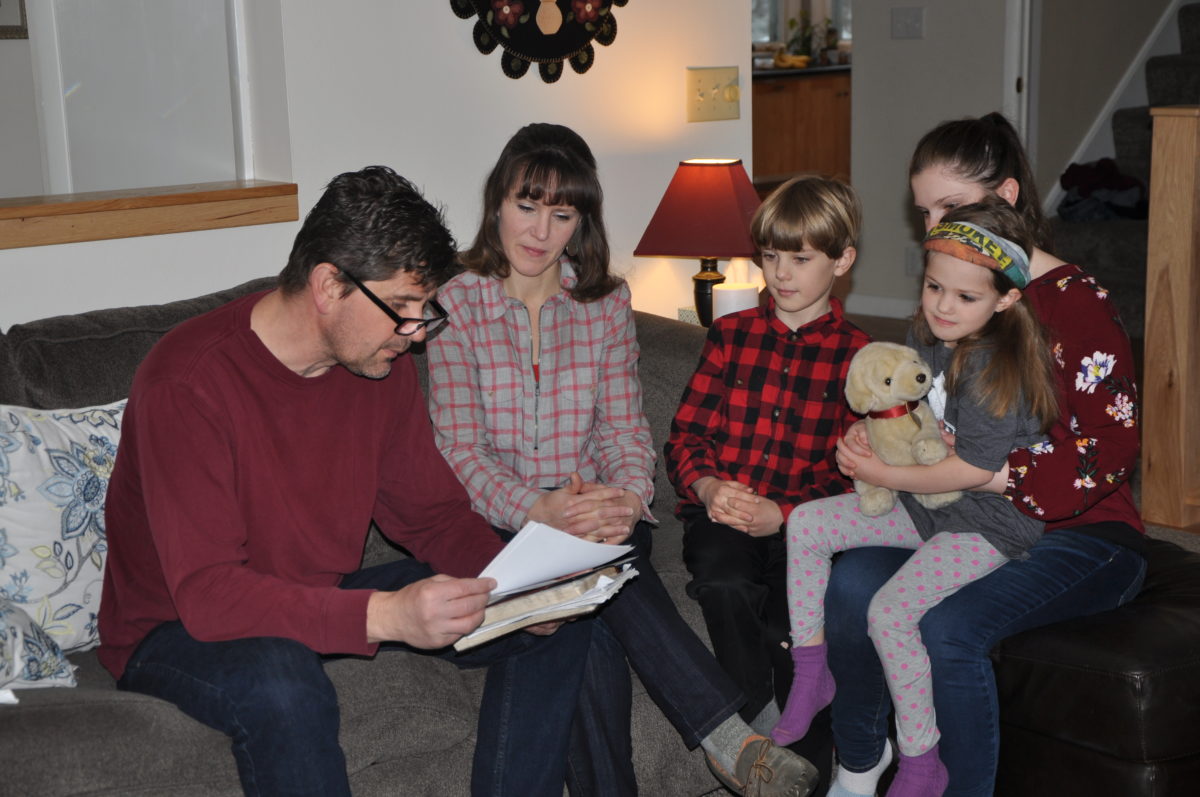This promises to be a big week for us in Wisconsin. Sheltered-in-place now for over seven weeks, and with no clear plans to reopen, people are restless. My family and I are restless!
Sometime this week (perhaps even before I hit “publish”) our Wisconsin Supreme Court will weigh in. But, depending on their decision, the situation might grow more tense. All of this is why—staring each Sunday morning into that little black camera with the green light—I’ve started to give little teaser messages about biblical principles to help us in our situation.
Now, these aren’t scholarly diatribes crafted from having read lots of books. (My routine hasn’t gotten easier with the crisis, so I’m plenty busy just keeping up.). They are, rather, quick statements of biblical truth. Let me know at bryanupnorth@gmail.com, if you agree, disagree, or want to talk more. Here’s three quick thoughts. I referenced the first yesterday.
Conspiracy Theories
I don’t spend much time on Facebook, but I get on enough to see what people really think. And last week was the week for conspiracy theories! I didn’t see it among my own Facebook friends, but my favorite theory is that the Corona-crisis is caused by the millimeter wave spectrum related to 5G technology. (If true, just about everybody is a virus carrier, I guess.).
All of this is distracting, but not new. My wife pointed out to me last week that there were many conspiracies circulated around Jesus’ resurrection. That’s what the men on Emmaus Road were discussing, after all. And yet, none of these theories proved true. And all paled in comparison to the truth—that Jesus is alive!
So let’s be careful with the theories. Let’s keep our minds on the truth of the gospel, and eagerly anticipate what God is doing in us personally, in our families, in our church family, and in His church around the world. At the cross and tomb, Jesus cracked the great conspiracy of Satan against God. Let’s not forget it.
“My Rights!”
The present climate has us forgoing basic rights for an (un)specified period of time in the face of a global threat. What about these rights?
Not meaning to get outside my wheelhouse here, but my understanding is that our “rights” originate from our obligations to God. If God requires something of me, I have a right to respond to God. This basic premise forms the foundation of our law code. Take God out of this equation, and you have nothing left but the will to power. And the 20th century demonstrated in manifold cases what that looks like.
So, I have a right to worship … to work … to care for my family … to speak the truth of the gospel, among other responses to God. These rights are being violated, right? Well, not so fast …
Within His created order God has also created government. Civil government, which Scripture begins to reveal in Genesis 9.5-6, has the basic responsibility of preserving life. The New Testament goes on to describe this basic responsibility of civil governors in Romans 13 and 1 Timothy 1.1-4. These governors might or might not know God in a saving way, but they’ll be held accountable to God for carrying out their basic responsibility.
I’ll not share where I stand personally and politically in our present Wisconsin crisis. It doesn’t matter, for our present purpose. I do believe that our shelter-in-place order has the basic intention of preserving life. This is why I and the elders at Woodland are working so hard to honor our government and stay within the “letter of the law”. This is why we’re not leading our church back before the order is lawfully lifted. In Zooming with other pastors across Wisconsin, I’m not aware of a single pastor who is pressing to regather before lawfully permitted.
Both the church and the state are ordained by God. In our present situation, we’re living in the space occupied by both. That’s what’s so hard about our predicament. So, how long do we comply? What would change our practice at Woodland?
Civil Disobedience
Last week the blogosphere was abuzz with talk of civil disobedience. I read some and listened to a podcast put out by the guys at 9Marks. I appreciated a statement by theologian Bobby Jamieson, “Civil disobedience is warranted when civil government forbids what God commands or commands what God forbids.” He went on to discuss examples of both cases from the book of Daniel. And I’d add the example of Peter and John from Acts 4:20, “Whether it is right in the sight of God to listen to you rather than to God, you must judge, for we cannot but speak of what we have seen and heard.”
We in our Wisconsin churches need to defer to government as long as possible. We aren’t being told not to worship. We are being told we can’t drink coffee and mingle in our church welcome area. The former is a right; the latter is a preference. Worship and fellowship can be carried out with some creativity, and that’s what we’re working on as we look at some kind of regathering in the month of June.
Finally, let’s not stray from asking ourselves what love looks like in each stage of our crisis. To date, love has looked liked social-distancing. There might come a time when love looks more like courage—running toward hurting people rather than caring for them from a distance.
But, that’s a topic for another day. Do let me know what you think. And have a blessed day …!



